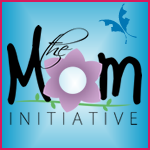Sunday, March 25

♫ On the road again! ♫
Back on the next leg of our journey. Today, we’ll stroll along the path of betrothal and be joined by the ancient bride. We’ll learn how the betrothal of old applies to us today in our earthly marriage and our spiritual marriage.
~Hope you’ve been following along, but, in case you haven’t, please check the end of this post if you’d like to catch up on the previous journey stops.
*The bride of old...
When a young woman went through the process of being betrothed to a young man, she would participate in kiddushin with her husband-to-be. Kiddushin was (and still is) a very serious commitment.
The word kiddushin comes from the same root word as “holy” but has no English word equivalent. This process consecrates a man and woman to each other.
Being bound together by the Law, the couple was referred to as husband and wife, though the marriage covenant forbade them to live together physically. They pledged to remain holy in their covenant relationship, making a strict vow of purity and allegiance to each other.
If the bridegroom found any uncleanness in his bride, according to the Law, he had the option of putting her away, or divorcing her, which required a public performance. Only death or a public document had the power to end betrothal or the marriage itself. The bride or wife could never divorce her husband.
Just what constituted uncleanness sometimes became a matter of debate between the rabbis. Some even considered bad cooking a good reason.
*The bride of today...
How seriously do we take the wedding vows of our earthly marriage covenant? Are they just ceremonial words we stumble over in nervousness? Do we adhere to a holy relationship of strict purity?
According to the vows used in years past, each partner promised to love, honor, and cherish, for better or for worse, for richer or for poorer, in sickness and in health, forsaking all others, cleaving only to each other, to have and to hold from this day forward, until death parted them. That is covenant language.
Today, it has become all too easy just to toss the marriage certificate of covenant in the garbage, especially for Christians. The divorce rate within the church is a disgraceful witness to the world.
Understandably, under certain conditions, divorce does occur, and although God’s forgiveness covers divorce, it is not His ultimate will for He hates divorce (Mal. 2:16a).
*The spiritual Bride...
Covenant is one of the most significant truths in God’s Word, laying a foundation for establishing our relationship with God as our provider, with Christ as our Bridegroom, with the Holy Spirit as our comforter, with our spouse in marriage, with each other in God’s family, and for understanding Scripture.
As our ancient, betrothed bride and groom were considered as one entity, the same truth exists when believers covenant themselves with Christ, for they become a part “of His body, of His flesh and of His bones,” (Eph. 5:30 NKJV) as a divine oneness.
As Paul said, “This is a great mystery, but I speak concerning Christ and the church.” (Eph 5:32 NKJV) The mystery, the secret? “And this is the secret: Christ lives in you.” (Col. 1:27b NLT)
Paul wrote to the Corinthians, telling them, “I am jealous for you with the jealousy of God Himself. I promised you as a pure bride to one husband—Christ.” (2 Cor. 11:2 NLT)
In our divine, covenant relationship, we vow to remain pure and holy. We vow to love, honor, and obey. When our Bridegroom finds uncleanness in us, He does not dismiss us with a certificate of divorce. The Holy Spirit convicts us of our sin; then, we ask for forgiveness and are cleansed by the shed blood of Jesus, being restored to our state of purity.
Just as our earthly marriage makes no room for any additional partners, so our heavenly espousal allows no desire in our hearts to be a rival for our Bridegroom. A heart yoked together with the Bridegroom in a holy union—one undivided in its affection, giving Him its full allegiance, without infidelity, hypocrisy, or unbelief—is His desire for us, His Bride.
Scripture cautions us, “Shun (keep clear away from, avoid by flight if need be) any sort of idolatry (of loving or venerating anything more than God).” (1 Cor. 10:14 Amp) Anything! If anything is dearer to our hearts than the Lord, then, it is an idol and threatens our relationship with our heavenly Bridegroom.
As has been said, “If He is not the Lord of all, then He is not the Lord at all!” So then, “looking away [from all that will distract] to Jesus,” (Heb. 12:2 Amp) we cleave only to the Bridegroom, saying as the Shulamite woman, “I am my beloved’s, and my beloved is mine.” (SOS 6:3 NKJV)
We cherish our Bridegroom as our First Love, to have and to hold from this day forward, guarding our covenant of betrothal with Him.
So ends today’s journey. Thanks for walking with me. Happy trails!

~If you did not read the reason for this monthly journey, you can read it here and the first step of the journey here. The second leg of the journey is here.
Linking up with...





































